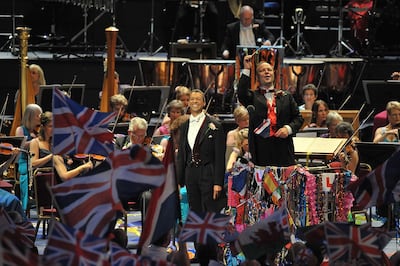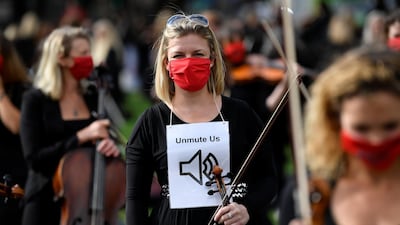A life without music is unthinkable. For most of us, listening to live music is a delight. That’s why in the UK the Glastonbury festival or the Proms at the Royal Albert Hall are popular highlights of the cultural year.
Covid-19 has brought a halt to our enjoyment, but the success of the vaccination programme rekindles new hope that later this year bands and artistes can begin touring again, jazz clubs and opera houses will re-open and outdoor festivals may eventually resume.
However, there is another threat to music in Britain, and it’s not the virus. It is the government. One music campaigner put it to me: “The British government has given the creative industries of the United Kingdom a No Deal Brexit. It is simply killing us.”

It’s not just musicians who are worried. Creative industries – films, television, theatre, fashion, dance, art galleries and music – have been at the heart of what is sometimes called Britain’s “soft power” for decades, even centuries.
A friend of mine, for example, is an English theatre designer. She is so talented she is called upon to work in France, Germany, the Netherlands and elsewhere on multi-million euro productions. Other groups of friends, musicians, spend every summer touring venues and festivals all over Europe. But the Brexit agreement, more formally known as the “EU-UK Free Trade and Co-operation Agreement” was negotiated in great haste at the insistence of Boris Johnson’s British government, and it is full of holes.
One enormous gap means that Britain’s creative industries face insurmountable bureaucratic restrictions on short-term work for musicians in the EU.
For years this work has been vitally important to artists and performers and also part of the UK’s export success – our cultural brand of excellence. Musicians and creative artists are now desperately campaigning – as one put it – “to shame the British government” into waking up to the damage that they have done.
The Beatles famously learned their craft in the clubs of Hamburg in the 1960s. Since that era, closer European co-operation and freedom of movement within the EU have made it much easier to work across borders – until now. Touring in Europe means packing up electronic equipment, speakers, keyboards and other instruments, light shows, and elaborate staging for a tour that can last a couple of months, crisscrossing borders from France to Greece, Spain to Poland.
But since January this year, Brexit means British musicians have to seek work permits and visas not for the EU as a whole but for each of the countries separately on a tour. Customs officials now require “carnets” – separate documentation for musical equipment. Violinists, for example, may play instruments worth hundreds of thousands of euros and need to move with paperwork valid for a typical tour from Britain to the Netherlands, Belgium, Germany, Austria, Italy and France, and then back home.

Then there is something called “cabotage", drop-off charges for equipment. A Pink Floyd tour would, for example, demand loading truckloads of equipment in London and play in festivals and venues around Europe, loading and unloading the same trucks. But now the new rules mean British trucks have to return to the UK after just two drops – so they visit Paris and Brussels but offload everything or return to the UK before heading to Amsterdam and beyond.
Musicians simply want the opportunity to earn a living, and the Brexit bureaucracy is demoralising, career threatening, time consuming and costly. A new campaign is beginning to demand that the UK government support an industry that is worth billions of pounds in revenues, and does unquantifiable good to the UK’s reputation as the leading live event provider in Europe.
The industry is said to be worth at least £70 billion ($97.6bn) a year and supports 700,000 jobs, mostly freelances. Of course major artists such as Elton John have the resources and support systems to be able to cope with the new bureaucracy. But established musicians also want to help younger musicians – tomorrow’s superstars – who do not have such support.

The British government and EU could, for example, negotiate a visa waiver agreement for 90 days to provide exemptions from work permits for music and theatre. They could agree on flexibility over “cabotage” so that trucks do not have to make wasteful journeys backwards and forwards. But it is difficult to be optimistic when, as one EU official put it, for the UK “the challenge now is … to adjust to the new reality of being outside the EU and its single market".
The simple fact is that the UK government has never admitted the profound damage Brexit is doing to this country. In its first month, January 2021, the country’s exports to the EU fell by an almost unbelievable 40 per cent, yet the government pretends these are merely Brexit teething troubles.
Moreover, musicians are not high on anyone’s political agenda. The UK department involved – Digital Culture, Media and Sport – is a political backwater. But it's time politicians stopped treating music as a hobby. It’s a truly valuable industry.
Gavin Esler is a broadcaster and UK columnist for The National



